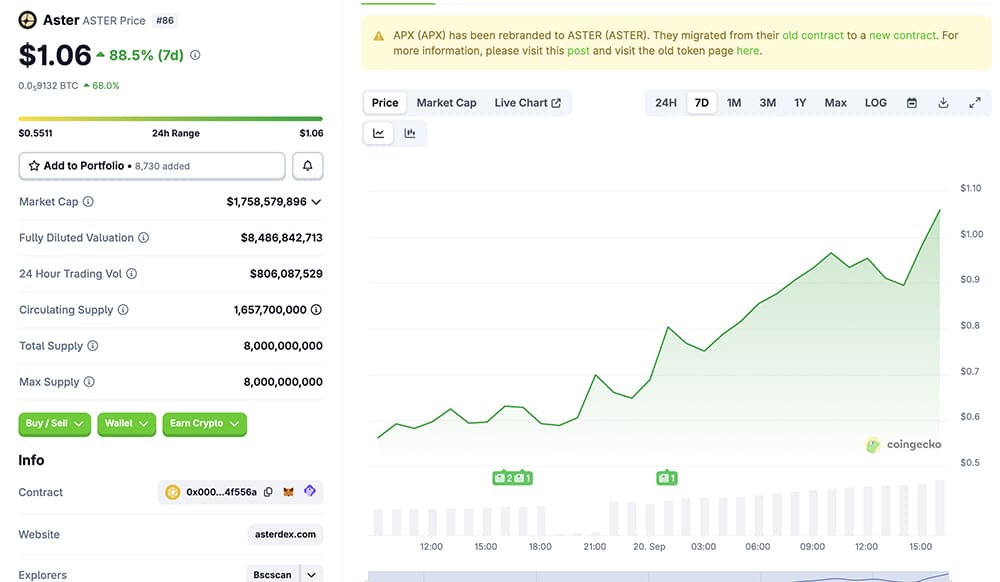If web3 wants to be taken seriously, it must follow Ethereum
The post If web3 wants to be taken seriously, it must follow Ethereum appeared on BitcoinEthereumNews.com. Disclosure: The views and opinions expressed here belong solely to the author and do not represent the views and opinions of crypto.news’ editorial. In July, Ethereum (ETH) hit a significant milestone of ten years without downtime. What started as an experiment a decade ago has grown into one of the most significant and influential blockchains globally. Summary Ethereum faces fierce rivals like Solana and Avalanche, but its edge lies not in speed or fees — it’s in governance, transparency, and fiscal discipline. The Ethereum Foundation is raising the bar with structured treasury policies and quarterly reports, signaling maturity and accountability as it moves beyond its experimental phase. Governance is a survival tool, not a nice-to-have — while many L1s still hide decisions or centralize voting power, Ethereum treats transparency as essential to long-term sustainability. The lesson for web3 is clear: credibility, not hype, will decide which networks endure. Ethereum is handing competitors its playbook — but only those who adopt it will stay relevant. Today, however, Ethereum is no longer the only game in town. It faces increased competition from blockchain rivals like Solana (SOL), Avalanche (AVAX), and newer layer-1s that promise faster transaction speeds, lower gas fees, and smoother user experiences, all challenging its dominance. But while debates are still centred around gas fees and transaction speeds, a deeper lesson is being overlooked. Despite recent fluctuations, Ethereum’s ability to enact governance, fiscal, and technological reforms continues to set benchmarks that rival networks must eventually measure up to, if they hope to match its credibility and adoption. Governance that leads by example Earlier this year, the Ethereum Foundation announced its plans to adopt a more structured and transparent treasury policy, linking its ETH reserves directly to operating costs and cash needs. Hsiao-Wei Wang, co-executive director of Ethereum Foundation, explained that…

The post If web3 wants to be taken seriously, it must follow Ethereum appeared on BitcoinEthereumNews.com.
Disclosure: The views and opinions expressed here belong solely to the author and do not represent the views and opinions of crypto.news’ editorial. In July, Ethereum (ETH) hit a significant milestone of ten years without downtime. What started as an experiment a decade ago has grown into one of the most significant and influential blockchains globally. Summary Ethereum faces fierce rivals like Solana and Avalanche, but its edge lies not in speed or fees — it’s in governance, transparency, and fiscal discipline. The Ethereum Foundation is raising the bar with structured treasury policies and quarterly reports, signaling maturity and accountability as it moves beyond its experimental phase. Governance is a survival tool, not a nice-to-have — while many L1s still hide decisions or centralize voting power, Ethereum treats transparency as essential to long-term sustainability. The lesson for web3 is clear: credibility, not hype, will decide which networks endure. Ethereum is handing competitors its playbook — but only those who adopt it will stay relevant. Today, however, Ethereum is no longer the only game in town. It faces increased competition from blockchain rivals like Solana (SOL), Avalanche (AVAX), and newer layer-1s that promise faster transaction speeds, lower gas fees, and smoother user experiences, all challenging its dominance. But while debates are still centred around gas fees and transaction speeds, a deeper lesson is being overlooked. Despite recent fluctuations, Ethereum’s ability to enact governance, fiscal, and technological reforms continues to set benchmarks that rival networks must eventually measure up to, if they hope to match its credibility and adoption. Governance that leads by example Earlier this year, the Ethereum Foundation announced its plans to adopt a more structured and transparent treasury policy, linking its ETH reserves directly to operating costs and cash needs. Hsiao-Wei Wang, co-executive director of Ethereum Foundation, explained that…
What's Your Reaction?








































